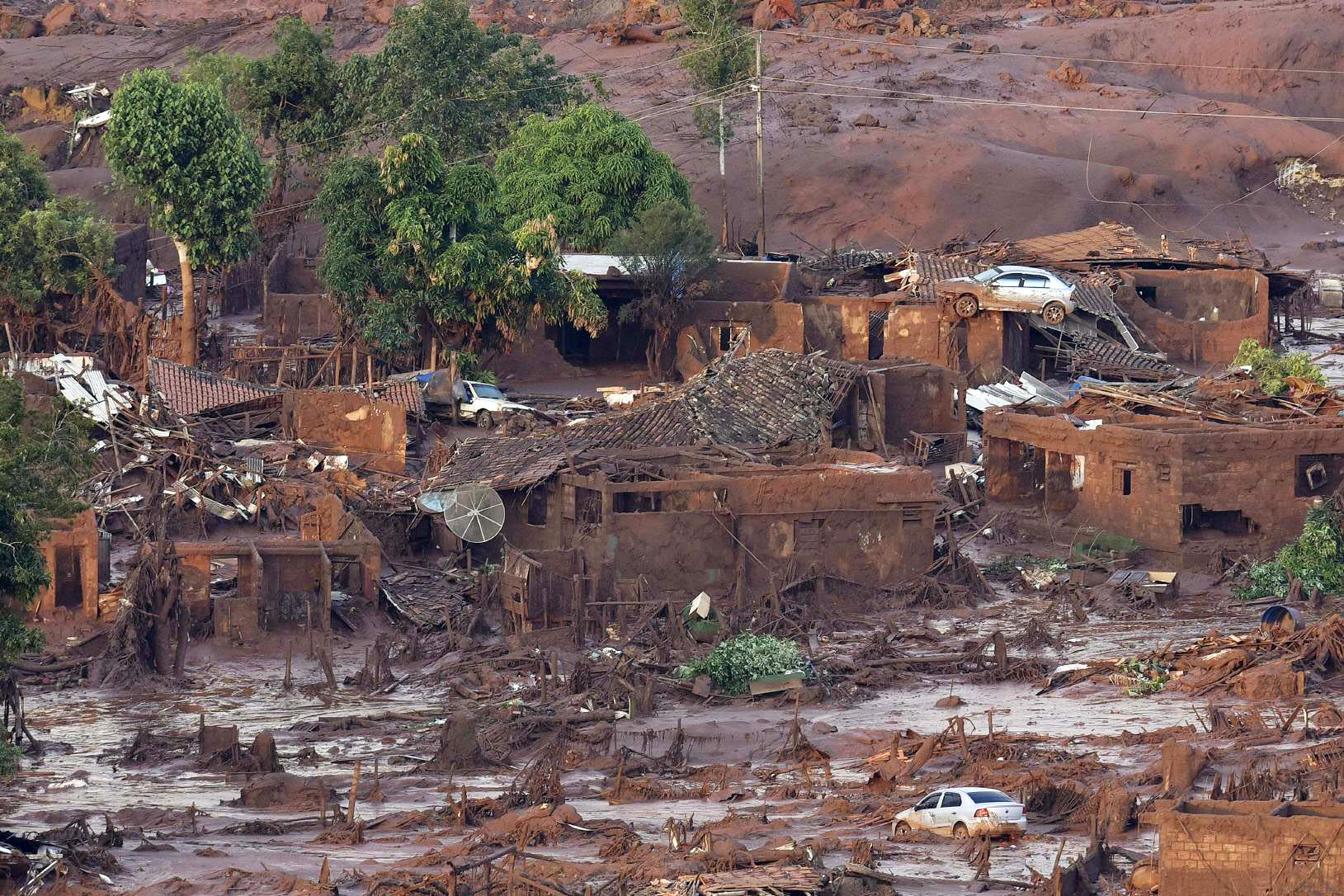
Every so often, the bourgeois political system runs into crisis. The machinery of the state jams; the veils of consent are torn asunder and the tools of power appear disturbingly naked. Brazil is living through one of those moments: it is dreamland for social scientists; a nightmare for everyone else.
 The dam took just half-an-hour to entomb half the village of Bento Rodrigues in 18 metres of iron-ore tailings, reddish mud and water slurry.
A вҖңmountain tsunamiвҖқ is how firefighters in Mariana, in Minas Gerais in south-eastern Brazil, described the bursting of mining company Samarco SantaremвҖҷs iron-ore tailings dam on November 5.
Marcos de Eufrasio, a 38-year-old stonemason who was cutting rock on that sunny afternoon, said that, from nowhere, he heard a вҖңmighty roarвҖқ.
The dam took just half-an-hour to entomb half the village of Bento Rodrigues in 18 metres of iron-ore tailings, reddish mud and water slurry.
A вҖңmountain tsunamiвҖқ is how firefighters in Mariana, in Minas Gerais in south-eastern Brazil, described the bursting of mining company Samarco SantaremвҖҷs iron-ore tailings dam on November 5.
Marcos de Eufrasio, a 38-year-old stonemason who was cutting rock on that sunny afternoon, said that, from nowhere, he heard a вҖңmighty roarвҖқ.


 Photo: CUT.
About 1 million people across Brazil protested on August 20 against right-wing attempts to impeach President Dilma Rousseff.
The marches were joined by Brazil's big social movements, including the Movement of Landless Workers (MST) and the United Workers' Central (CUT), the largest trade union federation in Latin America.
Photo: CUT.
About 1 million people across Brazil protested on August 20 against right-wing attempts to impeach President Dilma Rousseff.
The marches were joined by Brazil's big social movements, including the Movement of Landless Workers (MST) and the United Workers' Central (CUT), the largest trade union federation in Latin America.
 President Nicolas Maduro of Venezuela began his visit to Panama City for the Summit of the Americas with a visit to the impoverished neighbourhood of El Chorrillo to lay a wreath at the monument to those killed by the US bombing of the community during the 1989 US invasion of Panama.
The seventh Summit of the Americas, held in Panama City on April 10 and 11, was widely hailed as a victory for left-leaning and progressive forces in the region, particularly Venezuela and Cuba.
President Nicolas Maduro of Venezuela began his visit to Panama City for the Summit of the Americas with a visit to the impoverished neighbourhood of El Chorrillo to lay a wreath at the monument to those killed by the US bombing of the community during the 1989 US invasion of Panama.
The seventh Summit of the Americas, held in Panama City on April 10 and 11, was widely hailed as a victory for left-leaning and progressive forces in the region, particularly Venezuela and Cuba.



